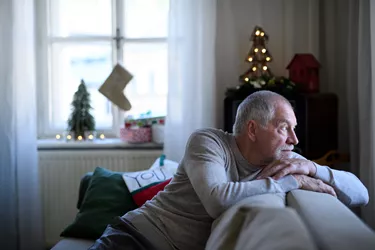In crisis: my experience
In time for the release of the CQC's Mental Health Act report, Claire blogs about her experience of crisis care.
In the spring of 2012, a couple of friends found me staggering around a train station confused and behaving like somebody they didn’t know. They took me straight to Accident and Emergency in Manchester and, I think, their actions probably saved my life.
I was experiencing a mental health crisis and it became immediately apparent to the doctors on duty that I needed to be admitted to an Acute Psychiatric Ward but, the lack of beds available in the system meant I was treated in a general ward for a number of days before transfer.
I was experiencing some frightening visual and auditory hallucinations, intense rolling panic attacks, was extremely disorientated, feeling incredibly anxious, my thinking was scrambled and, although I struggle to remember this now, ran away from the hospital in the middle of the night and this resulted in me being sectioned for around two months, at the age of 26.
I was placed on a mixed sex ward treating people with a range of illnesses including schizophrenia, bipolar, depression, PTSD and Alzheimer’s then moved to a women’s ward after a couple of weeks. During my detention in the hospital, I did not get access to any form of talking therapy or counselling - despite being judged to have an acute mental health problem. As far as I'm aware, this was the case for the large majority of the patients on the ward.
The second ward I was on had no garden and we were only allowed outside to smoke. The hospital clearly needed a garden so people could get some fresh air between all the ward rounds and medical procedures. The hospital also needed more showers, toilets and space.
Most rooms had six patients sleeping in them and seemed pretty crowded. Mental illness can sometimes be noisy and this often made it extremely difficult for people to sleep and so resulted in people asking for sleeping pills on top of the other medications they were taking. Some of the patients seemed to find the environment distressing and I feel that the lack of space, privacy and appropriate facilities may have exacerbated some people’s illnesses as the ward often had a stressful atmosphere.
The nurses, social workers and other support staff working in both the wards I was in were incredibly compassionate and caring but I felt that the building seemed dangerous sometimes. I have read that many Acute Psychiatric Wards where closed in the 80s and I wonder if this has impacted heavily on the chronic lack of beds which are now available? I also read that some young people with mental health problems are being held in police cells which is disturbing and, again, highlights the need for more beds, understanding and access to care before people reach the point of hospitalisation.
I was also surprised to learn that while I was sectioned my right to vote was automatically taken away. I feel I was capable of voting while I was in hospital and think some of the laws and rules surrounding a sectioning are discriminatory. I think people may have also recovered more smoothly if we’d had access to activities such as art, drama or exercise to keep occupied and perhaps take our minds off the strange cycle of pills, treatments, lockdowns, checks and intensive psychiatric interviews.
I really hope the Government will listen to the patients, medical experts and Mind's crisis care campaign so that the physical conditions of the hospitals can improve and people can access the care they need.
If anyone who is experiencing a mental health crisis happens to read this – trust me, you can get better – I’ve been back at my job as a secondary school teacher for over a year now and feel totally tuned in and myself again. I really hope you get the support you need to get on the mend.


Information and support
When you’re living with a mental health problem, or supporting someone who is, having access to the right information - about a condition, treatment options, or practical issues - is vital. Visit our information pages to find out more.
Share your story with others
Blogs and stories can show that people with mental health problems are cared about, understood and listened to. We can use it to challenge the status quo and change attitudes.

















